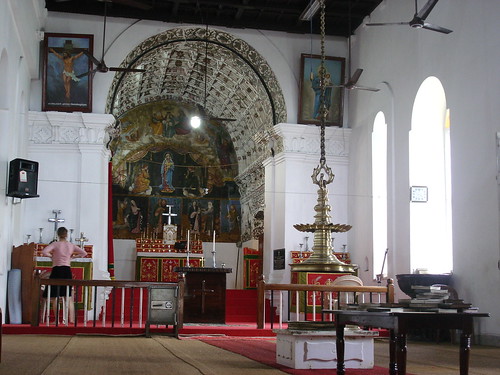 One of the contributions Diarmaid MacCulloch has made through his book, A History of Christianity , is to make accessible, not only the broad sweep of Christian history but also those dimensions of history long forgotten by the modern churches.
One of the contributions Diarmaid MacCulloch has made through his book, A History of Christianity , is to make accessible, not only the broad sweep of Christian history but also those dimensions of history long forgotten by the modern churches.
One example of the latter is the impact of the Council of Chalcedon (451 CE). MacCulloch provides a lucid account of what was a somewhat involved theological dispute. It was about the nature of Jesus and whether he was of one nature (like water mixed with wine) or two natures (like water mixed with oil). At the time, the disputes between these two views were exercising theologians throughout the eastern Mediterranean.
The council accepted as orthodoxy the 'Tome' presented to Ephesus by Pope Leo's envoys two years before, and it constructed a carefully balanced definition of how to view the mystery of Christ: "the same perfect in divinity and perfect in humanity, the same truly man and truly God, of a rational soul and a body; consubstantial with the Father as regards his divinity, and the same consubstantial with us as regards his humanity ..." This still remains the standard measure for discussion of the person of Christ, in Churches otherwise as diverse as Greek, Romanian and Slavic Orthodox, Roman Catholics, Anglicans and mainstream Protestants.
The problem was of course, there remained those who disagreed on both sides of the argument. Those who 'adhered to a more robust affirmation of the two natures in Christ'are known as Dyophysites. Others who believe in the one nature of Christ are known as Miaphysites.
The Dyophysite Church became known as the Church of the East. The Syrian Orthodox Church (see illustration) in the present day seems to be the main remnant of a movement which at one time might have challenged Rome, as a great church based in Baghdad. It had a long history but it was Islam that weakened it over the centuries.
A parallel might be to the phenomenon in modern markets where the best products do not necessarily become the most popular. At some point people buy it because everyone else does and so a better product might be lost. The most well known example is the competition between VHS and Betamax video tapes and recorders. Betamax was in the marketplace sooner and seems to have been a better product but VHS was better marketed and became the dominant product.
The Chalcedon settlement was picked up by the majority of Christians. This does not of course mean it was the better of the two and it is worth considering that had history worked out differently we might all have been Dyophysites.
Would it have made much difference? It is hard to say. The Chalcedon Churches were those that had already been adopted by the Roman Empire, and so they had powerful support from the secular leaders of the time. The Dyophysites were always minority faiths as they spread across Asia. They had to make their way in the world not through the exercise of power but through negotiation and persuasion. They did very well, spreading as far as China.
The Christian faith has experienced many such movements which grew and then fell back. We are seriously mistaken if we see the development of the faith as a simple story of truth over falsehood. The reality is many interpretations living side by side, some dating back for many centuries.

Comments